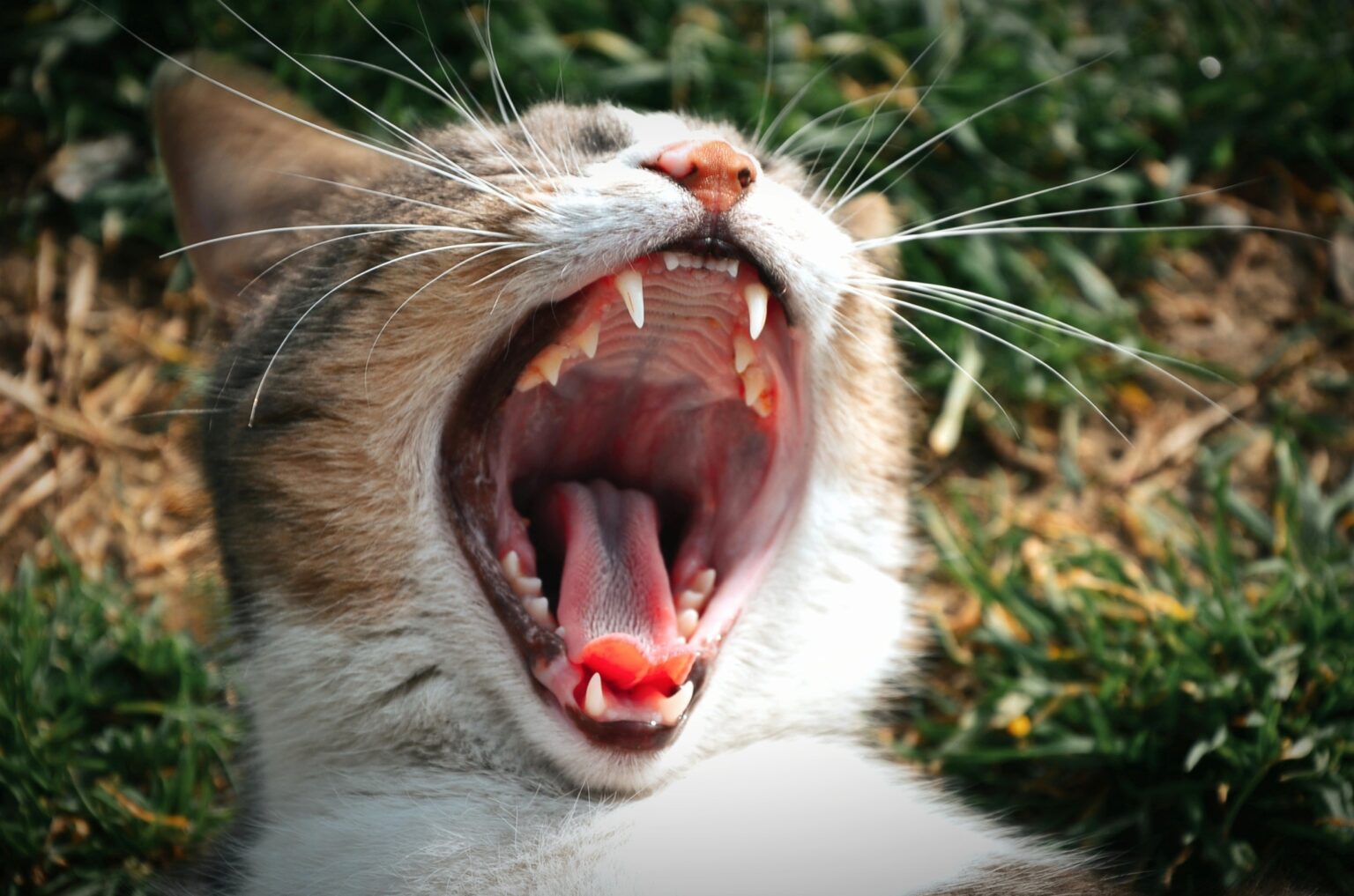Introduction to Cat Dental Health and Care
Cat dental health is extremely important for our feline friends. Poor oral hygiene and untreated dental disease can lead to significant medical issues for cats. According to veterinary experts, most cats over age 3 develop some form of periodontal disease.
This article will provide an overview of the common dental problems cats face and how pet owners can best prevent and treat dental disease. Proper cat dental care is key to protecting your cat’s health and quality of life.
We will cover the following topics related to kitty dental health:
- Signs of dental disease to look out for
- Ways to provide preventative dental care at home
- The importance of annual veterinary dental cleanings
- Treatment options for dental issues like gingivitis, abscesses, and tooth loss
- Costs associated with professional cat dental care
Following the veterinarian-recommended tips in this article will help optimize your cat’s oral health. Be sure to monitor your cat’s teeth and gums regularly for any warning signs of dental problems. With proper dental hygiene and preventative care, your feline companion can enjoy a healthy mouth well into their senior years.
Common Dental Problems in Cats
Cats can develop several types of dental disease and oral health issues including:
- Plaque and Tartar Buildup: Plaque is a sticky film of bacteria that forms on the teeth. If not removed through brushing, it hardens into tartar which can lead to gingivitis.
- Gingivitis: Inflammation of the gums caused by a buildup of plaque and tartar on the teeth. Signs include red, swollen, or bleeding gums.
- Periodontal Disease: Occurs when inflammation spreads deeper below the gumline affecting the bone and tooth roots. Can lead to loose teeth and tooth loss.
- Tooth Decay: Damage to the tooth enamel caused by acids produced by plaque bacteria. Leads to cavities, tooth abscesses, and pulpitis.
- Tooth Loss: Can occur from severe periodontal disease, tooth decay, or trauma. Affects chewing and can impact overall health.
- Oral Tumors: Abnormal tissue growths in the mouth. May be malignant or benign. Can impact chewing and be disfiguring.
Regular dental exams, cleanings, and home care can help prevent and treat these common feline dental diseases. Left untreated, dental disease is painful and can negatively impact a cat’s quality of life.
Signs of Dental Disease in Cats
It’s important for cat owners to regularly monitor their pet’s oral health and watch for any warning signs of dental disease. Common symptoms include:
- Bad breath – Persistent foul odor from the mouth
- Red, swollen, or bleeding gums – Indicative of gingivitis
- Loose or missing teeth – Advanced dental disease
- Discolored teeth – May indicate tartar buildup
- Changes in eating habits – Difficulty chewing due to dental pain
- Pawing at the mouth – Oral discomfort
- Drooling – Can signal an oral injury or infection
- Weight loss – Chewing and eating difficulties
- Nasal discharge – Potential sign of an oral infection spreading
Any notable changes to a cat’s mouth or teeth should prompt a veterinary dental examination. Early detection and treatment of dental problems leads to better health outcomes.
Routine professional dental cleanings and home care can help prevent many feline dental diseases from developing in the first place.
Preventing Dental Disease in Cats
There are several effective ways cat owners can help prevent dental problems from developing:
- Daily tooth brushing – Using a soft-bristled brush and pet-safe toothpaste
- Dental diets and treats – Kibble, canned food, or treats formulated to reduce plaque
- Regular dental cleanings – Professional cleanings remove plaque and tartar
- Dental sealants – Protective coating applied to teeth by a vet
- Oral rinses – Antiseptic solutions to reduce bacteria in the mouth
- Chew toys – Interactive toys that scrape plaque off teeth
Brushing a cat’s teeth daily is the single most effective form of preventative dental care. Special toothpastes and toothbrushes designed for cats are recommended. Introduce brushing slowly with positive reinforcement.
Professional dental cleanings under anesthesia are key to managing dental health. Veterinarians recommend annual dental cleanings starting around age 3. Cleanings allow a thorough assessment and treatment of any existing dental disease.
With proper home care and regular veterinary cleanings, many feline dental problems can be avoided. Be proactive about your cat’s oral hygiene for better long-term health.
Professional Dental Cleanings for Cats
Professional dental cleanings performed by a veterinarian are an essential part of managing feline dental health. Cleanings should be done annually starting around age 3.
The process involves general anesthesia to allow a thorough cleaning above and below the gumline. Vets use ultrasonic scalers and hand instruments to remove all plaque and tartar from the teeth.
A full dental examination includes dental x-rays to check tooth roots and oral tumor screening. Any diseased or damaged teeth can be extracted if needed.
Fluoride treatments, sealants, or antibiotic rinses may be applied to prevent future dental disease. The cat’s mouth is closed with dissolvable sutures.
Benefits of professional dental cleanings include:
- Removing plaque and tartar to prevent gingivitis
- Assessing for issues like resorptive lesions and tooth decay
- Allowing thorough treatment of existing dental problems
- Improving oral health and quality of life
Regular professional cleanings are key to optimizing feline dental care and reducing dental disease. Be sure to schedule annual vet visits for your cat’s important oral health needs.
At-Home Dental Care Tips for Cat Owners
In addition to professional cleanings, cat owners can provide regular at-home dental care to improve oral hygiene:
- Tooth brushing – Use a soft brush and feline toothpaste daily. Focus on the outer surfaces.
- Dental wipes – Disposable wipes to wipe away plaque-causing bacteria.
- Water additives – Solutions added to drinking water to reduce plaque.
- Dental treats – Chews and kibble to scrape away tartar. Look for VOHC seal.
- Dental gels – Enzyme-based gels applied to teeth with a finger brush.
- Interactive feeders – Slow down eating to increase chewing.
- Raw bones – Natural scraping of teeth while chewing.
Go slowly when introducing at-home dental care to avoid stress. Offer praise and treats as positive reinforcement.
Also provide annual professional veterinary cleanings for optimal oral health. Daily home care helps reduce plaque between annual cleanings.
With patience and regular preventative dental care, owners can help improve their cat’s oral hygiene and reduce dental disease risk.
Cost of Dental Care for Cats
Professional veterinary dental care and treatment can get expensive for cat owners. Understanding the costs involved will help you budget accordingly.
A basic annual dental cleaning with no extractions or treatments ranges from $300-$800. Additional services will raise the price:
- Tooth extractions – $100-$300 per tooth
- Oral surgery – $1000+ depending on complexity
- Root canals – $1000-$2000 per canal
- Dental x-rays – $100-$300
- Tooth resorptions – $500+ per lesion
Dental appliances like crowns, braces, or retainers range from $1000-$3000.
Home care products like dental diets, treats, toothpaste, and brushes will cost $10-$50.
Pet dental insurance can offset costs, with plans from $10-$40 per month. Compare coverage and exclusions.
While professional dental care for cats can be costly, ignoring dental problems leads to more complex health issues in the long run. Regular cleanings and check-ups help prevent expensive treatments later on.
Conclusion on Cat Dental Health
Providing proper dental care is crucial to protecting your cat’s health and quality of life. Left untreated, dental disease like gingivitis, resorptive lesions and periodontal disease can lead to tooth loss, infections, and serious medical conditions.
By implementing preventative home care like brushing and dental treats, and scheduling annual professional cleanings, cat owners can help optimize their pet’s oral health. Watch for warning signs of dental problems and address any issues promptly.
While professional dental treatments and surgeries can be expensive, they are worthwhile investments in your cat’s health. Budgeting for routine cleanings and exams helps prevent costly procedures later on.
With vigilant monitoring, thorough veterinary care, and regular dental hygiene at home, your feline companion can enjoy healthy teeth and gums for years to come. Be proactive about your cat’s oral health – it’s one of the best things you can do for their overall well-being!


